Erstellt am: 23. 5. 2014 - 18:58 Uhr
"What Do We Mean By Standard of Living?"
How quickly is Europe really growing together? It’s a question that crosses my mind as I arrive in Bratislava, the nearest EU capital to Austria, to mark the tenth anniversary of Slovakia’s accession to the bloc.
Although the station is only 3km from the Austrian border, and despite the fact you can get there cheaply on an Austrian regional train, for me, getting there can still feel like stepping to an unfamiliar world.
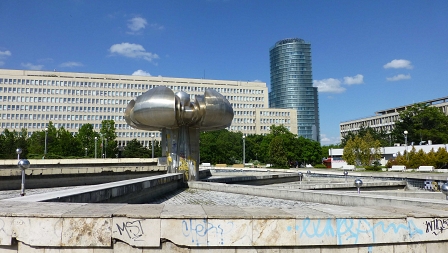
chris cummins
Shamefully, I have to admit, I know more about the politics and cultural life of the USA or even Australia than I do of Slovakia. And though I often cycle there, I still can’t speak a word of the language.
"Where's the Danube?"
With no signposts in English or German near the station, I’m already lost within minutes of arriving, pushing my bike off the train.
The red-cheeked men drinking 1 euro beer at the station are friendly but speak only Slovak, and my sign language for “Where’s the Danube?” fails miserably. They think I’m thirsty.
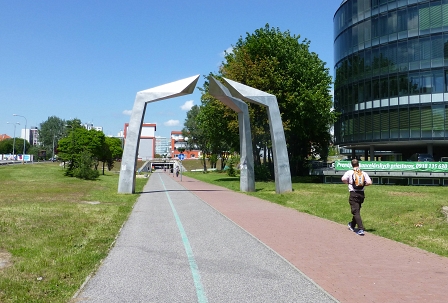
chris cummins
So I take the only safe looking option - a brand new cycle path that headed off into a maze of apartment blocks. I pedal off past tempting looking outside bars and leafy playgrounds with cracked-concrete and, after negotiating two bridges, find myself in the cobbled touristy world of Bratislava’s old town.
An Inverted Pyramid
I push my bike past the outside terraces of new cappuccino bars until I arrive at the alluring inverted pyramid that some Communist-era visionary built to house the Slovak broadcasting corps. I want to discuss Slovakia’s decade of EU membership and have arranged an appointment with a friendly, bustlingly efficient journalist from Radio Slovakia International called Anca Dragu.
“Oh that’s one of things that was built with EU money,” says Anca as I express my enthusiasm for the cycle path, hoping to excuse my sweaty and rather pungent arrival. Anca is impressed with the progress Slovakia has made in recent years. “12 years ago Bratislava really was a village,” she tells me. “You can see the improvements everywhere, even with your naked eye.”
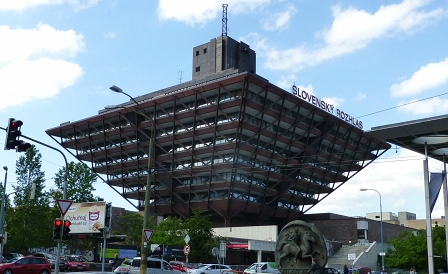
chris cummins
That’s certainly true. There are flashy new glass buildings in the business zones and the old city has been lovingly restored.
But a few blocks further out there are still big cracks in the greying concrete and Anca’s own office, which looks out through smudged windows onto the forested hills behind the town centre, looks like the run-down set of a 1960s James Bond thriller.
But then again, these past ten years have not been bumpy ride.
Perplexing Changes
Slovakia joined the EU in 2004 and the Eurozone in 2009, qualifying for the currency union through a series of tough reforms that Anca says put Slovakia in a better position than most countries to weather the storms of the economic crisis. These two steps were matters of great pride for Slovakia, but they have brought societal changes that have often perplexed Slovaks, particularly those living away from the main urban centres of Bratislava and Kosice.
The Positive
First of all the good things…
As well as much needed EU grants and investment from private business in the past decade, many Slovaks have enthusiastically embraced the benefits of passport free travel.
Dieses Element ist nicht mehr verfügbar
Many, indeed, have taken up the chance of employment abroad, sending remittances home from Britain, France, Germany and Austria that have often been used to prettify villages. In the country dirt roads have been metalled and sewage systems improved.
Anca, who is a business reporter, is proud of progress Slovakia has made in the past decade. “The mentality of the Slovaks has changed, and I think in a positive way.” She says that young people nowadays are more open to new ideas than they were ten years ago and there’s energy and a buzz around the urban centres.
A new generation of more self-confident innovative Slovaks is bursting onto the job market.
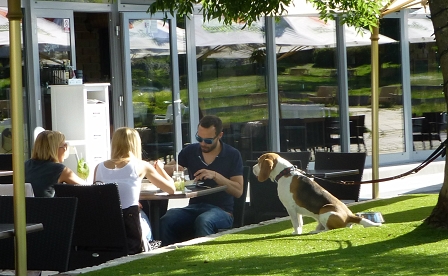
chris cummins
The Negative
Yet ten years on from accession many Slovaks are also questioning what has been lost during this great lurch forward.
There have been superficial globalisation grumbles about the once opulent variety of delicious Slovak cheeses that have been quietly eroded by the arrival of the ubiquitous mega-labels of western goods in Slovakian supermarkets. And there have been more existential worries too. Some Slovaks feel that this brave new multinational world has dangerously eroded to the traditionally strong family values that Slovaks had previously enjoyed.
Anca’s colleague Martina Šimkovičová, who grew up in the poorer eastern part of Slovakia says cross border working rights have been a double edged sword: “There are no jobs in some areas and so many young men, many of whom are fathers of young children, have moved abroad to find work. “I think EU membership has had an effect of family life.”
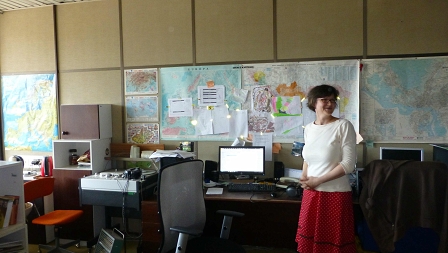
chris cummins
Western European wages can go a long way in Slovakia and the money earned abroad has often been used by returning migrant workers, or via remittance payments, to build impressive family homes. But Martina questions the value of this brick and mortar if the family structures are no longer intact
“I wonder what standard of living really means,” muses Martina, “Is it money? Or is it some other value such as family life?”
Like many Slovaks who spent their childhoods in the Communist era, she welcomes the new freedoms but is wary of the unquestioning embrace of materialism. “We appear to have forgotten some of our values, such as respect and appreciation for the elderly.”
Low Turnout Expected
Martina doesn’t consider herself a European sceptic and as a new round of elections approach the pro-Europeans are certainly still in the majority. Yet a decade on, the initial excitement of the accession year 2004 has been replaced with more pragmatic emotions.
“Most Slovaks are still in favour of the EU,” says Martina, “because of the money.”
Turnout is expected to be low at the elections, says Anca, partly due to a general mistrust of all Slovak politicians, who have been mired in several corruption scandals in recent years. Also, she says, as in many member states there is a rather vague understanding of how the European Parliament actually works and of what sort of influence a small country like Slovakia might wield in Brussels.
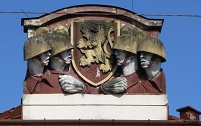
chris cummins
Big Shifts
Anca says Slovakia needs to move away from a production line economy to more innovation-driven lines of business and to reform both education and health care. But given the short time frame Slovakia’s development has been remarkable:
“Slovakia was a rural backwater and then in the Communist time the authorities tried to make it a centre of heavy industry. In the 25 years since the fall of Communism we have had to change almost everything. It is a huge project and 25 years is not even a generation!”
As the afternoon turns to evening I went for a beer with an old friend, the 29-year old Michal Brat in downtown Bratislava.
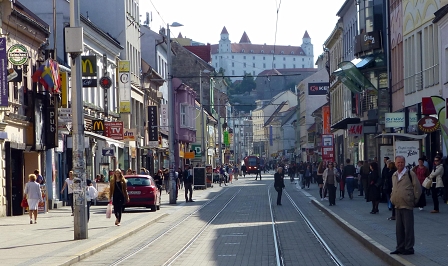
chris cummins
Sharp-suited, multi-lingual and well travelled, Michal, who now works in marketing, was just a teenager at accession and in many ways is a poster boy of the new EU generation. But like Martina, he's worried about the eroding of family life and the growing gaps in society.
The glossy veneer of EU-era Slovakia often ends a few hundred metre outside of the main cities but he says the poorer rural areas are “certainly not the worst places in Slovakia.” There is he says “a spirit and a generosity” in the less developed areas that remains a source of pride.
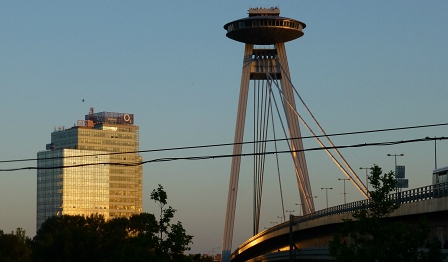
chris cummins
But he says that there is no going back now: it is a question of moving forward while retaining a respect for the less materialistic aspects of Slovakian life. “I think we have lost a lot, but still generally things are changing for the better.”
Reality Check: Four Neighbours, 10 years on
Ten years ago saw the largest enlargement of the European Union in terms of territory, number of states and population. Simultaneous accessions concerned ten countries. As EU residents are thinking this weekend about which parties and individual politicians they would like to send to the EU Parliament, we take a look at four neighbouring countries that became EU members in May of 2004:- the Czech Republic, Slovakia, Slovenia and Hungary. We talk to our correspondents in those four states to find out what has changed for the better or for the worse and how do people in these countries feel about their decade as European Union citizens.
This saturday, 24th May, 12-13 h and on fm4.ORF.at/7days after the show.


